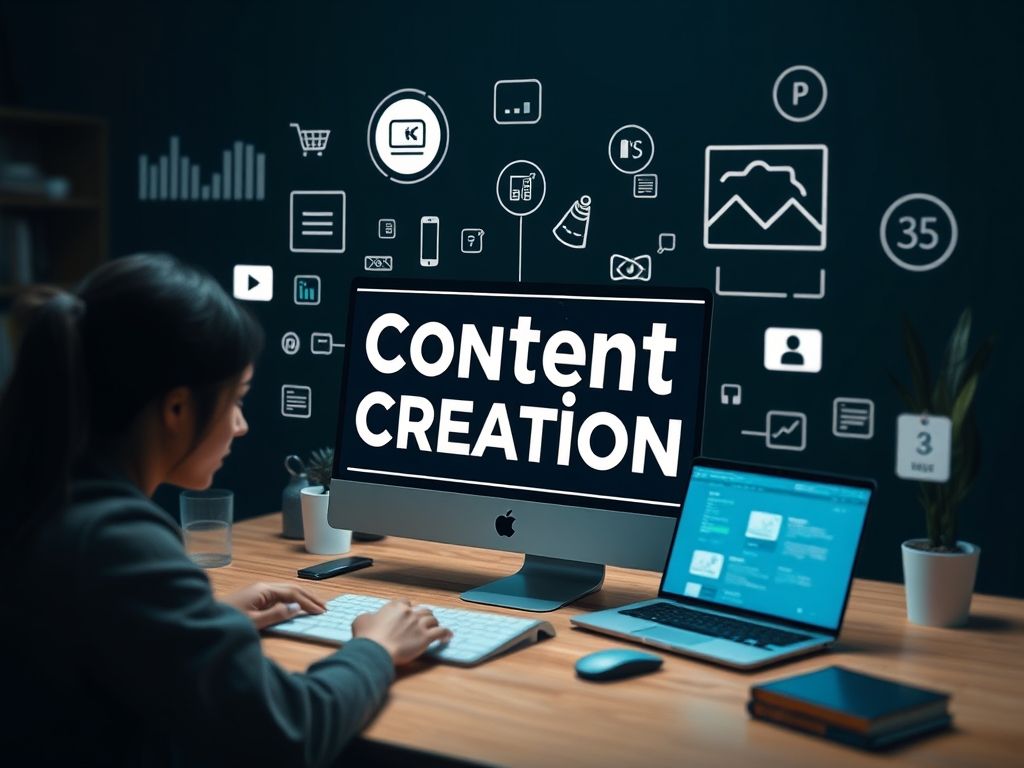What is Content Creation?
Content creation refers to the process of generating creative material for various digital platforms, including websites, social media, blogs, and videos. This material can take various forms, such as text, images, audio, and video, aimed at engaging an audience and fulfilling specific marketing goals. In today’s digital landscape, effective content creation is crucial for businesses and individuals looking to establish a strong online presence and connect with their target audience.
The Importance of Content Creation in Digital Marketing
Content creation plays a pivotal role in digital marketing strategies. It serves as the backbone of communication between brands and consumers. High-quality content helps in:
- Building Brand Awareness: Engaging content can significantly increase visibility and recognition of a brand.
- Driving Traffic: Well-optimized content can improve search engine rankings, leading to increased website traffic.
- Enhancing Customer Engagement: Interactive and valuable content keeps the audience engaged and encourages them to interact with the brand.
- Generating Leads: By providing valuable information, businesses can capture leads and convert them into customers.
Key Elements of Content Creation
To create effective content, several key elements must be considered:
- Audience Understanding: Knowing your target audience’s preferences, interests, and pain points is essential for creating relevant content.
- Content Strategy: A well-defined strategy outlines the goals, types of content, and distribution channels to be used.
- Quality and Originality: High-quality, original content builds trust and authority in your niche.
- SEO Optimization: Incorporating keywords, meta tags, and alt attributes enhances visibility in search engines.
Types of Content in Content Creation
Different types of content serve various purposes in the digital marketing landscape. Here are some common types:
- Blog Posts: Articles that provide information, insights, and entertainment while targeting specific keywords.
- Videos: Visual content that explains concepts or showcases products, often more engaging than text alone.
- Infographics: Visual representations of data that simplify complex information and enhance shareability.
- Podcasts: Audio content that allows for in-depth discussions on topics of interest, catering to audiences who prefer listening.
- Social Media Posts: Short-form content designed to engage users on platforms like Instagram, Twitter, and Facebook.
Practical Applications of Content Creation
Implementing effective content creation strategies can lead to tangible results. Here are some practical applications:
- Content Planning: Use content calendars to plan and schedule content release, ensuring a consistent flow of information.
- Audience Engagement: Encourage user-generated content by hosting contests or asking for feedback, creating a community around your brand.
- Repurposing Content: Transform existing content into different formats, such as turning a blog post into a video or infographic, to reach a wider audience.
- Analytics and Feedback: Monitor performance metrics to understand what content resonates most with your audience and adjust your strategy accordingly.
Related Concepts in Content Creation
Understanding content creation also involves familiarity with several related concepts:
- Content Marketing: A strategic approach focused on creating and distributing valuable content to attract and retain a clearly defined audience.
- SEO (Search Engine Optimization): The practice of optimizing content to rank higher in search engine results, driving organic traffic to websites.
- Social Media Marketing: Using social media platforms to promote content and engage with audiences directly.
- Brand Storytelling: The art of using narrative to connect emotionally with an audience, making the brand more relatable.
Conclusion: The Future of Content Creation
As digital marketing continues to evolve, so does the landscape of content creation. Keeping up with trends, technologies, and audience preferences is crucial for staying relevant. By mastering content creation, marketers and professionals can effectively communicate their messages, build relationships, and drive business success.
Remember, effective content creation is about more than just producing material; it’s about creating valuable experiences that resonate with your audience. Start applying these insights and techniques today, and watch your content strategy thrive!









